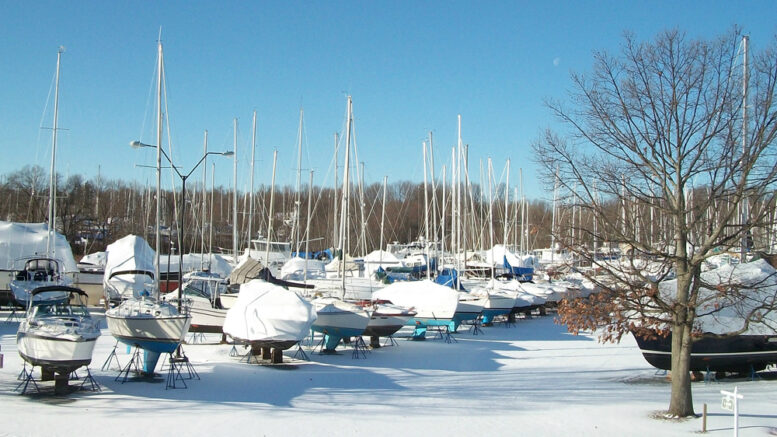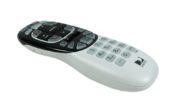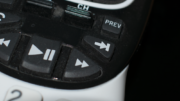One of the hardest times for your boat is when it’s sitting still. Even though it’s built to crash through the waves on a daily basis, it’s prone to damage during winter storage. How can something that seems so harmless do damage to your vessel? Well, boat storage is the time when the “silent killers” of boats tend to run rampant. We’ll explain what these destroyers are and how to stop them. To help protect your craft, Signal Connect offers these 10 tips for winterizing a boat.
Why Boat Storage is Important
Corrosion and moisture are the biggest threats to your boat. These things often happen when your vessel or craft is in winter storage. Corrosion quietly eats away at the metal fittings while moisture festers and flourishes in unseen places. If allowed to continue, this can do major damage to the exterior and interior of your craft. You can avoid all this if you know how to winterize your boat. There are 10 easy ways to prevent corrosion and moisture from harming your craft. Sure, it takes a little time, but it’s worth the effort to protect the investment you’ve made in your boat.
Here at 10 tips for storing your boat in the winter:
- Clean Your Boat: I know we sound like your parents when we say this, but there’s good reason to clean your vessel before it goes into storage. Washing the top, bottom, and deck helps keep corrosion from taking hold. You also should clean your boat’s hardware and trim, and remember to clean the windscreens, tops, and other canvas. Let canvas products dry, then move them indoors. If you notice any damage, it’s best to repair it now.
- Flush the Cooling System: If your boat’s motor has a raw water cooling system, flush it with fresh water then drain it. This removes any salt, dirt, and corrosion that’s built up in the motor. If you live in an area with freezing winters, you should run anti-freeze through the cooling system. You can attach a hose from a container of anti-freeze to the water pump, or remove the thermostat housing and pour the anti-freeze into the cylinder block. This helps prevent damage that comes from freezing.
- Prep the Fuel System: Before the long winter, fill up your fuel tank. This helps prevent condensation from building up inside. While you’re at it, you should also change the fuel filter and perhaps add a marine fuel stabilizer to reduce the build up of gum and varnish. This also helps keep the fuel and fuel system clean. After adding the stabilizer, run the engine for a few minutes to circulate it through the system.
- Protect the Engine: There are many products that remove gum, varnish and rust from your engine parts. You should use one of them to clean your engine’s components before storage. To help protect the outside of your engine, apply a light coat of fogging oil on its exterior.
- Oil Changes: It’s best to change your engine’s oil at the end of the season, just before you put your boat in storage. It’s one less thing you have to do when you pull the boat out next summer. When putting oil in your boat’s engine, remember to use the type and level of oil that’s recommended by the manufacturer. This is also a good time to drain and re-fill the outdrive gear case. Again, be sure to use the recommended oil and amount for this specific installation.
- Lubrication: Having the boat out of the water is the best time to apply marine grease to the boat’s fittings. Lubricate the sterndrive gimbal bearing, engine coupler, and steering tilt tube. Do the same for any other component that requires it.
- Check Everything On Board: Look for anything out of the ordinary. This includes worn or corroded cables, low or leaking fluids, and loose or damaged fuses and wires. The same goes for fuel lines, hose connections, and other components.
- Stop Mold and Mildew: There are many places on your boat where moisture can gather. This allows mold and mildew to grow and flourish during the off-season. Areas such as bilges, lockers, drawers, and live wells are susceptible to mold and mildew. So are cushions. Clean and dry everything thoroughly before putting your boat into storage.
- Remove and Store Items: Equipment such as life jackets, dock lines, fire extinguishers, and flares are best stored indoors at room temperature. The same goes for electronic products such as GPS systems, signal boosters, and marine batteries.
- Outdoor Storage: It’s always best to store your boat in an enclosed, climate-controlled storage facility. If you can’t do this for whatever reason, you should get a boat cover. This helps protect the craft against the elements. Some boat owners even have their vessel shrink-wrapped to seal it against the elements. Try to put it in a location that protects the craft from wind, weather, and sunlight. Check your boat throughout the off-season to make sure the cover remains intact, etc.
The Best Winter Boat Storage Tip
Boat storage, as you can see, is quite involved when you try to do it yourself. The 10 winter storage tips we shared here are merely the basics. If all of this seems overwhelming – and it can be – then perhaps you should contact your local marina or boat storage facility. If you choose to go this route, make sure to get a list of everything these professionals plan to do to safely store your boat. If it matches up with this list, then you’ll know they have the basics covered. If they go above and beyond this list, you can feel confident that your boat is in good hands.
Satellite TV for Boats from Signal Connect
What do winter boat storage and marine DIRECTV have in common? Answer: You don’t use either of them during the off-season. Regarding marine DIRECTV, you don’t have to pay for it while your boat is in storage. Signal Connect is an DIRECTV Commercial Dealer that provides DIRECTV accounts to luxury vessels and professional craft. Whether you own your own one boat or manage a commercial fleet, we have you covered. Our reps will set you up with a DIRECTV account, satellite dish, and equipment you need to enjoy your DIRECTV programming in your yacht, tugboat, or trawler. Just give us a call at 888-233-7563.





